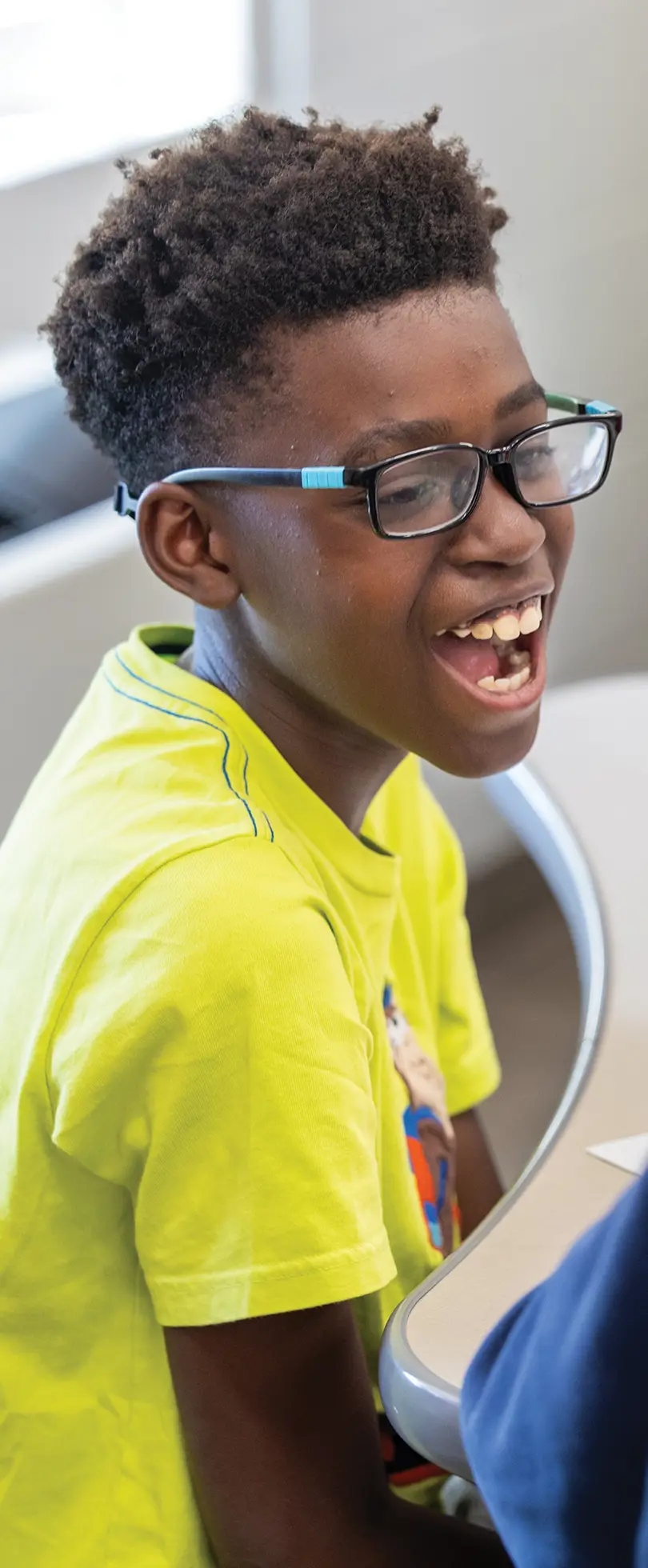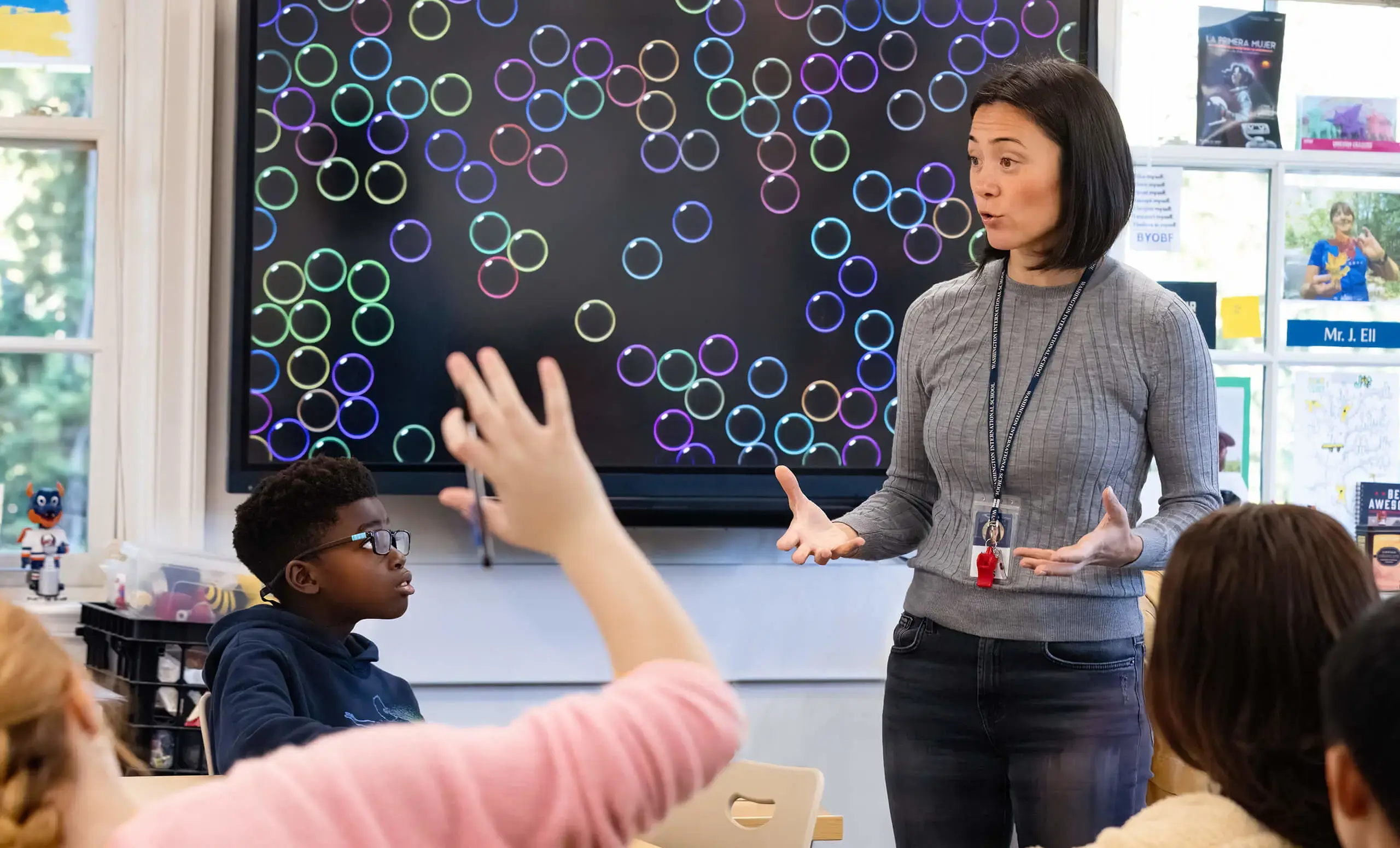CURRENT OPPORTUNITIES
|
Upper School Economics and Social Studies Teacher (start date August 2026) | Posted February 19, 2026 |
|---|
|
Reporting to the Upper School Principal, the Upper School Economics and Social Studies Teacher is responsible for planning and implementing differentiated instruction for Grades 9 & 10 Economics and Social Studies courses and IB DP Economics courses based on ongoing assessment; communicating clearly with parents and colleagues; and coordinating support with the best interests of each individual child in mind. Salary Range: $61,460–$120,860 Additional details are available on our application portal. |
|
upper school golf coach (seasonal; to begin March 2) | Posted February 18, 2026 |
|
WIS seeks a knowledgeable and student-centered Upper School Golf Coach to lead its Varsity Golf program. This seasonal position is ideal for an individual passionate about developing student-athletes in a competitive, mission-driven independent school environment. This is a stipended position. Stipend: $3,700 Additional details are available on our application portal. |
|
Primary School Learning Specialist (start date August 2026) | Posted February 17, 2026 |
|
Reporting to the Primary School Principal, the Primary School Learning Specialist provides academic support for students with diverse learning needs in order to help them become independent, responsible, and successful learners. The Primary School Learning Specialist also guides teachers in the implementation of appropriate methodologies for diverse learning needs. Salary Range: $65,000–$95,000 Additional details are available on our application portal. |
|
Primary School STEAM and Digital Communities Coordinator (start date August 2026) | Posted February 17, 2026 |
|
Reporting to the Primary School Principal, the Primary School STEAM and Digital Communities Coordinator is responsible for the implementation and support for STEAM and Digital Citizenship curriculum and instruction across the Early Childhood–Grade 5. The Primary School STEAM and Digital Communities Coordinator is a close partner of the Primary School Librarian and the Design Technology Teacher and is a collaborator on school-wide curricular initiatives involving Science, Technology, Engineering, Arts and Mathematics (STEAM). Salary Range: $65,000–$95,000 Additional details are available on our application portal. |
|
Upper School Mathematics Teacher (start date August 2026) | Posted February 10, 2026 |
|
Reporting to the Upper School Principal, the Upper School Mathematics Teacher is responsible for planning and implementing differentiated instruction for Grades 9 & 10 Mathematics and IB Mathematics based ongoing assessment; communicating clearly with parents and colleagues; and coordinating support with the best interests of each individual child in mind. Salary Range: $61,460–$120,860 Additional details are available on our application portal. |
|
extended learning Manager of Operations & Camps| Posted February 5, 2026 |
|
The Manager of Operations & Camps is an integral member of the Washington International School Extended Learning (WISEL) team, focusing on the effective on-site management and coordination of the Extended Day Care (EDC) program and overseeing the schools’ primary-school day camp program. The incumbent serves as the Day Camp director at the Primary School campus for all vacation and summer camps. Reporting directly to the Director of Extended Learning, this position requires a high level of project management and program development as well as routine interaction with parents, faculty, staff, and outside vendors. They support the delivery of quality educational and recreational activities outside of the standard day-time curriculum. The Manager's schedule will generally align with the program's operating hours, which will change depending on the season. Salary Range: $50,000–$70,000 Additional details are available on our application portal. |
|
WISummer employment opportunities | Posted February 4, 2026 |
|
WISummer 2026 Staff Applications are now open! We have all kinds of different opportunities this year, operating out of our home-base at the Primary Campus. You can learn more about all of the opportunities here: And apply through our application portal on CampBrain (new this year!) here: Applications are reviewed on a rolling basis, so we encourage all interested candidates to apply early. Please reach out to summer@wis.edu with any questions. |
|
Middle School Spanish Teacher (start date August 2026) | Posted December 19, 2025 |
|
Reporting to the Principal, the Middle School Spanish Teacher is responsible for planning and implementing differentiated Spanish instruction based on ongoing assessment; communicating clearly with parents and colleagues; and coordinating support with the best interests of each individual child in mind. Salary Range: $61,460–$120,860 Additional details are available on our application portal. |
|
Middle and Upper School Science Teacher (start date August 2026) | Posted December 19, 2025 |
|
Reporting to the Principals, the Middle and Upper School Science Teacher is responsible for planning and implementing differentiated instruction for 8th grade integrated science, 9th and 10th grade Physics and IB Physics based on ongoing assessment; communicating clearly with parents and colleagues; and coordinating support with the best interests of each individual child in mind. Salary Range: $61,460–$120,860 Additional details are available on our application portal. |
|
Primary School Lunch Monitor | Posted July 29, 2025 |
|
Reporting to the Primary School Principal and Assistant Principals, the Primary School Lunch Monitor is responsible for supervising and supporting students during lunchtime in a family-style dining environment. This includes ensuring a safe, inclusive, and positive dining experience while fostering independence, social skills, and community. Daily hours are between approximately 11:00 AM and 2:00 PM. PAY RATE: $22 per hour Additional details are available on our application portal. |
| Primary, Middle, Upper School Substitute Teachers | ONGOiNG NEED |
|
WIS is in need of substitute teachers for the 2024-25 academic year. Substitute teachers are needed for all divisions — Primary (Early Childhood through Grade 5), Middle (Grades 6-8) and Upper Schools (Grades 9-12). There is a particular need for French, Spanish, and Chinese teachers (Chinese for Middle and Upper School only); native speakers only. Early Childhood (Preschool, Prekindergarten and Kindergarten) is full immersion in either French or Spanish. Grades 1 through 5 receive half the instruction in English and half in either French or Spanish in all subjects (math, social studies, science). Specialists include Art/Digital Technology, Music and PE. Expertise in all subjects is needed, including: math, the sciences (chemistry, biology, physics, general science), English (including writing as well as literature), digital media, history, geography, economics. Candidates with flexible schedules who are available for frequent assignments in several subjects and/or grades are likely to work more often. Requirements include a relevant degree and a minimum of two years of teaching experience. Knowledge of the IB PYP or IB DP preferred but not required. APPLY HERE. PAY RATE: $200 per day |
12 CORE BELIEFS ABOUT LEARNING
WIS holds true to 12 Core Beliefs About Learning, which are based upon Principles of Learning, Teaching, and Assessment from the Tasmanian Department of Education, Australia.
| 1. We believe that all humans want to learn, and that learning is an essential, innate, ongoing, and lifelong process. |
|---|
|
TEACHING Therefore educators:
ASSESSING Therefore:
|
| 2. We believe that learning is a process of making meaning of the world. |
|
TEACHING Therefore educators:
ASSESSING Therefore:
|
| 3. We believe that learners are unique and they are responsible for their own learning. |
|
TEACHING Therefore educators:
ASSESSING Therefore:
|
| 4. We believe that learning depends on being able to connect prior knowledge, perceptions, or patterns of experience to new experiences, new information, and contexts. |
|
TEACHING Therefore educators:
ASSESSING Therefore:
|
| 5. We believe that learning is profoundly influenced by social relationships. |
|
TEACHING Therefore educators:
ASSESSING Therefore:
|
| 6. We believe that learning is significantly affected by emotions. |
|
TEACHING Therefore educators:
ASSESSING Therefore:
|
| 7. We believe that self-perception directly affects motivation and learning. |
|
TEACHING Therefore educators:
ASSESSING Therefore:
|
| 8. We believe that learning is more effective when information is embedded in purposeful and meaningful experiences and interactions. |
|
TEACHING Therefore educators:
ASSESSING Therefore:
|
| 9. We believe that learning is contextual. |
|
TEACHING Therefore educators:
ASSESSING Therefore:
|
| 10. We believe that learning is enhanced when learners are aware of how thinking and learning occur (meta-cognition), which gives learners increased control over their learning. |
|
TEACHING Therefore educators:
ASSESSING Therefore:
|
| 11. We believe that learning is demonstrated when learners can apply their understandings in new situations in flexible and thought-provoking ways. |
|
TEACHING Therefore educators:
ASSESSING Therefore:
|
| 12. We believe that learning is complex and non-linear. |
|
TEACHING Therefore educators:
ASSESSING Therefore:
|










